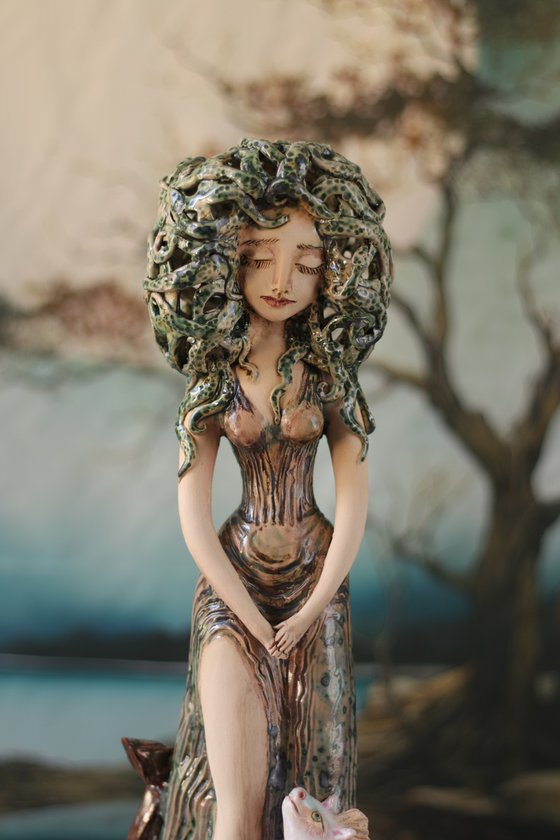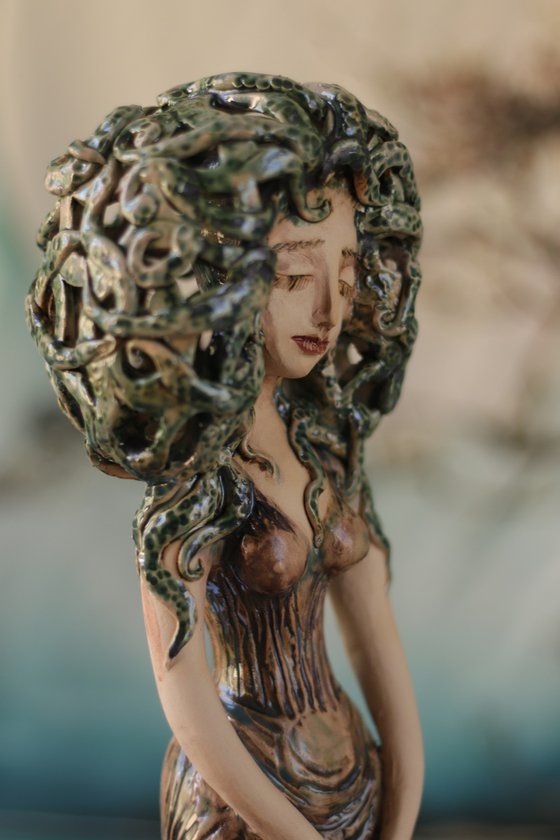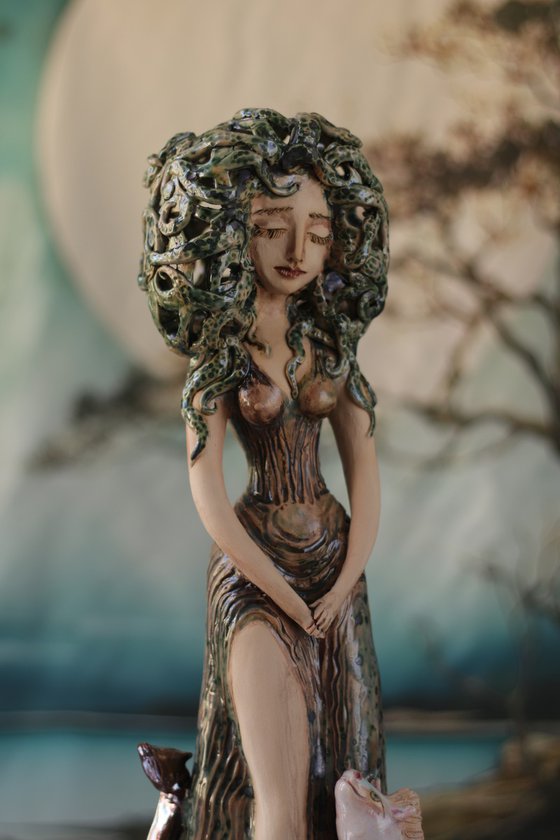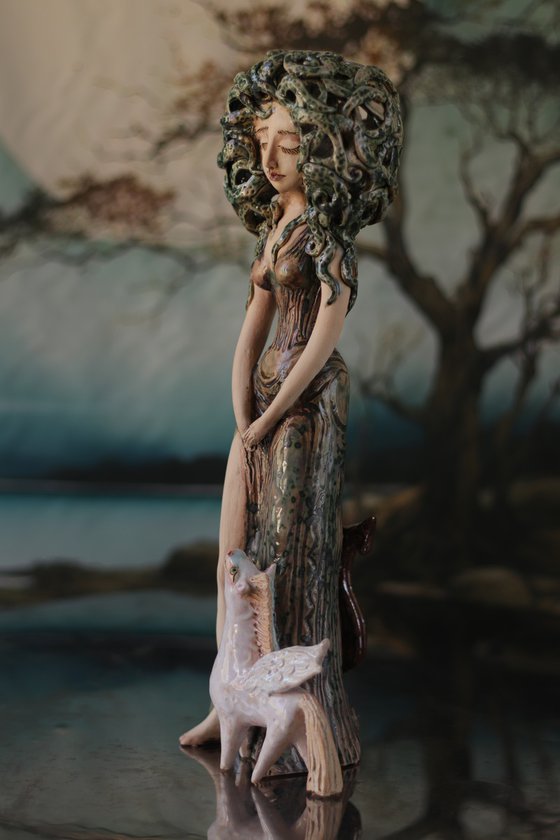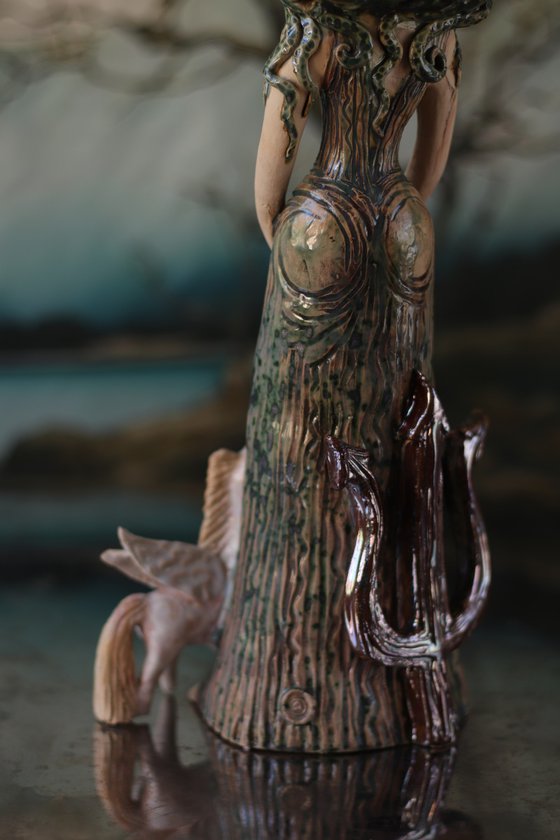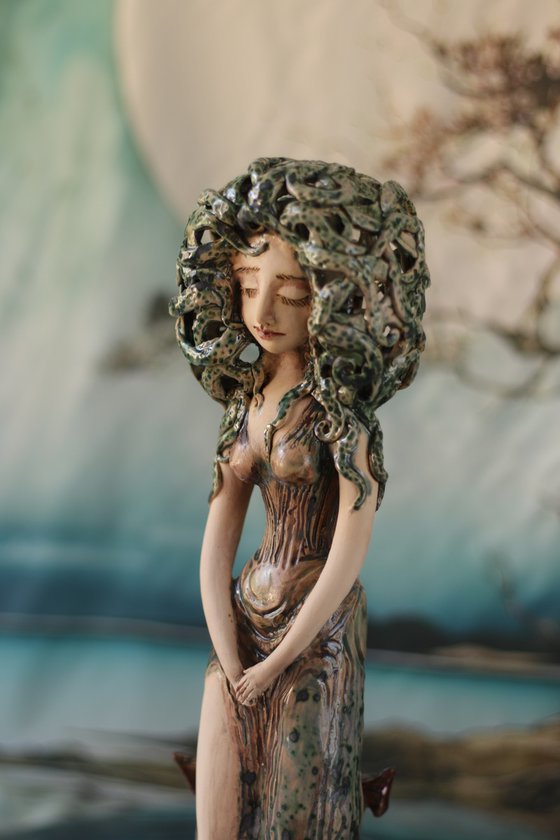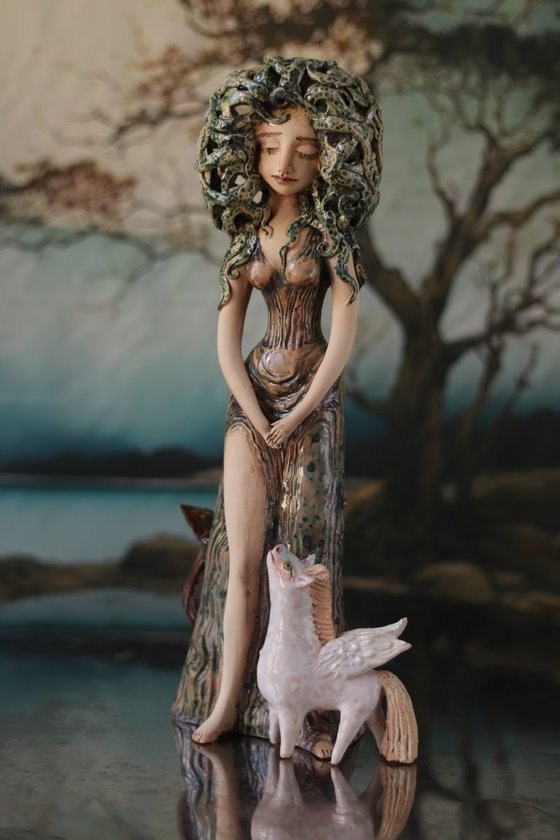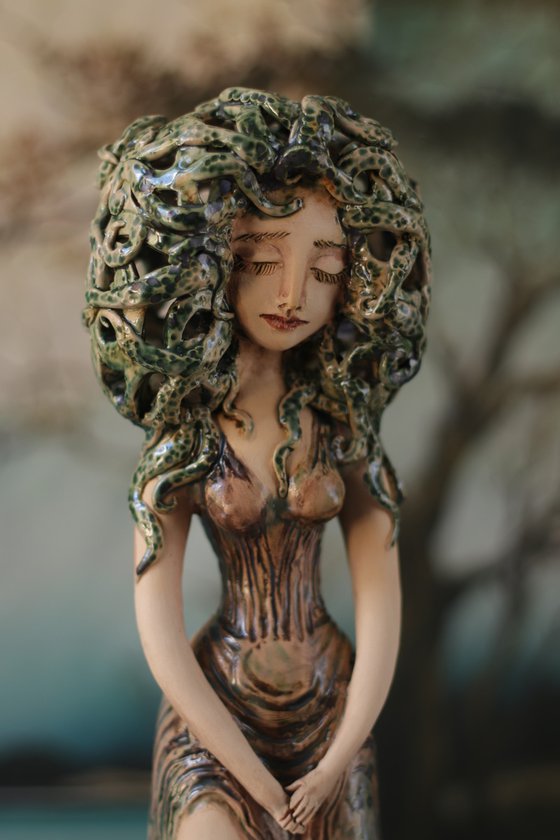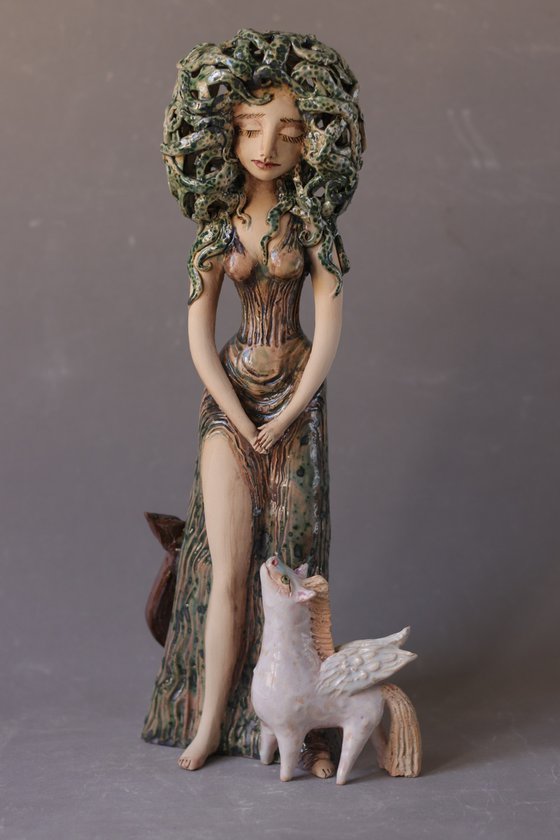Main Navigation
Original artwork description:
Greek legends are full of tough stories, and the legend of Pegasus, the winged horse, is no exception.
Medusa was once a beautiful maiden and priestess in the temple of Athena.
Her story has survived millennia and is a perfect example of gender-based objectification, victim-blaming, and misogynistic narratives that have been accepted without question for generations. But if you go deeper into the legend, you will see the scope of her personal tragedy and might agree that the common interpretation is probably not the best one.
Her beauty was such that Poseidon, the god of the sea at that time, couldn't resist it. He attacked her in Athena's temple, which enraged the goddess. However, instead of punishing Poseidon, Athena turned her wrath on his victim - Medusa - cursing her with serpent hair and a gaze that turned people to stone.
From this tragic event, Pegasus was born later. The winged horse sprang from Medusa’s blood when she underwent a transformative encounter with the hero Perseus. Using a reflective shield from Athena, Perseus managed to complete his mission without facing Medusa’s stoning gaze directly.
As Perseus continued his adventures, Pegasus soared into the sky, symbolizing hope and freedom. The winged horse became a symbol of beauty and strength, a contrast to the dark origins of his birth. Despite the tragedy of Medusa's fate, Pegasus represents the idea that even in the harshest stories, something beautiful can emerge.
In my view, the stoning effect of Medusa’s curse was rooted in the inevitable personal injustice of her fate. Medusa's only fault was being a true devotee of her goddess, and yet it did not help her in any way.
Hope a have captured the story in my work.
Elya
Materials used:
clay, engobe, glaze
Tags:
#anthropomorphic #greek #ancient #crete #classicMedusa with her child Pegasus (2024) Sculpture
by Elya Yalonetski
171 Artist Reviews
£347.61
- Sculpture on Other
- One of a kind artwork
- Size: 14 x 35 x 13cm
- Ready to hang
- Signed on the back
- Style: Expressive and gestural
- Subject: People and portraits
Loading
Original artwork description
Greek legends are full of tough stories, and the legend of Pegasus, the winged horse, is no exception.
Medusa was once a beautiful maiden and priestess in the temple of Athena.
Her story has survived millennia and is a perfect example of gender-based objectification, victim-blaming, and misogynistic narratives that have been accepted without question for generations. But if you go deeper into the legend, you will see the scope of her personal tragedy and might agree that the common interpretation is probably not the best one.
Her beauty was such that Poseidon, the god of the sea at that time, couldn't resist it. He attacked her in Athena's temple, which enraged the goddess. However, instead of punishing Poseidon, Athena turned her wrath on his victim - Medusa - cursing her with serpent hair and a gaze that turned people to stone.
From this tragic event, Pegasus was born later. The winged horse sprang from Medusa’s blood when she underwent a transformative encounter with the hero Perseus. Using a reflective shield from Athena, Perseus managed to complete his mission without facing Medusa’s stoning gaze directly.
As Perseus continued his adventures, Pegasus soared into the sky, symbolizing hope and freedom. The winged horse became a symbol of beauty and strength, a contrast to the dark origins of his birth. Despite the tragedy of Medusa's fate, Pegasus represents the idea that even in the harshest stories, something beautiful can emerge.
In my view, the stoning effect of Medusa’s curse was rooted in the inevitable personal injustice of her fate. Medusa's only fault was being a true devotee of her goddess, and yet it did not help her in any way.
Hope a have captured the story in my work.
Elya
Materials used:
clay, engobe, glaze
Tags:
#anthropomorphic #greek #ancient #crete #classic14 day money back guaranteeLearn more
